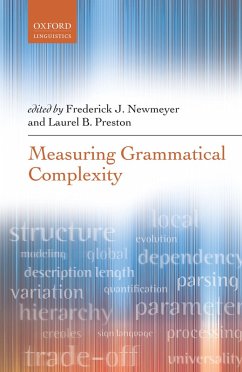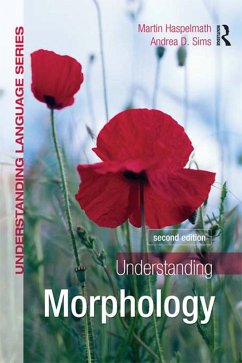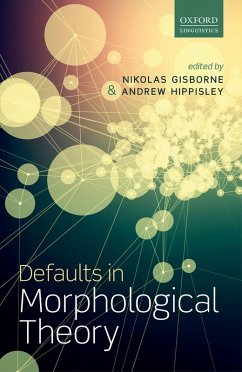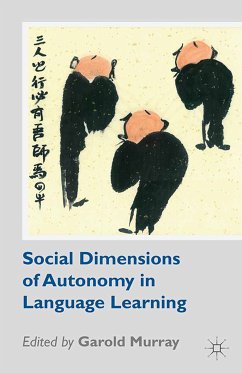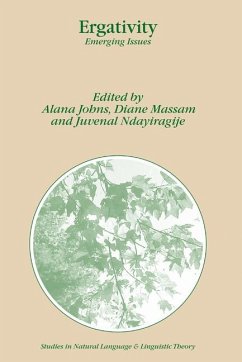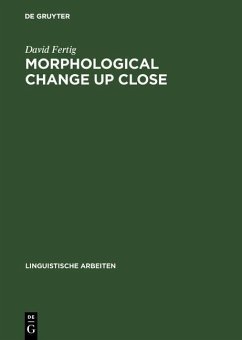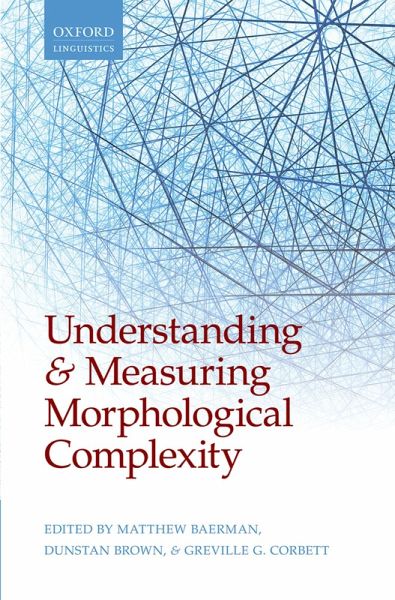
Understanding and Measuring Morphological Complexity (eBook, PDF)
Versandkostenfrei!
Sofort per Download lieferbar
47,95 €
inkl. MwSt.

PAYBACK Punkte
24 °P sammeln!
This book aims to assess the nature of morphological complexity, and the properties that distinguish it from the complexity manifested in other components of language. Of the many ways languages have of being complex, perhaps none is as daunting as what can be achieved by inflectional morphology: this volume examines languages such as Archi, which has a 1,000,000-form verb paradigm, and Chinantec, which has over 100 inflection classes. Alongside this complexity, inflection is notable for its variety across languages: one can take two unrelated languages and discover that they share similar syn...
This book aims to assess the nature of morphological complexity, and the properties that distinguish it from the complexity manifested in other components of language. Of the many ways languages have of being complex, perhaps none is as daunting as what can be achieved by inflectional morphology: this volume examines languages such as Archi, which has a 1,000,000-form verb paradigm, and Chinantec, which has over 100 inflection classes. Alongside this complexity, inflection is notable for its variety across languages: one can take two unrelated languages and discover that they share similar syntax or phonology, but one would be hard pressed to find two unrelated languages with the same inflectional systems. In this volume, senior scholars and junior researchers highlight novel perspectives on conceptualizing morphological complexity, and offer concrete means for measuring, quantifying and analysing it. Examples are drawn from a wide range of languages, including those of North America, New Guinea, Australia, and Asia, alongside a number of European languages. The book will be a valuable resource for all those studying complexity phenomena in morphology, and for theoretical linguists more generally, from graduate level upwards.
Dieser Download kann aus rechtlichen Gründen nur mit Rechnungsadresse in A, B, BG, CY, CZ, D, DK, EW, E, FIN, F, GR, HR, H, IRL, I, LT, L, LR, M, NL, PL, P, R, S, SLO, SK ausgeliefert werden.




